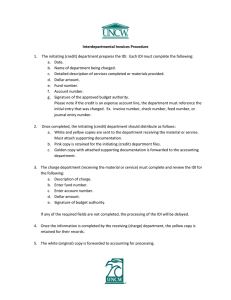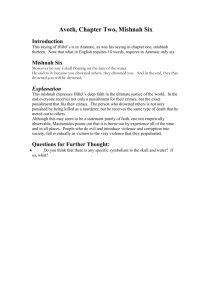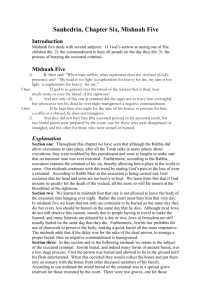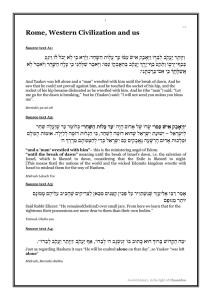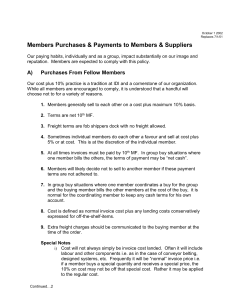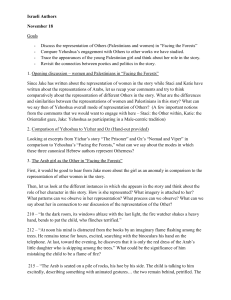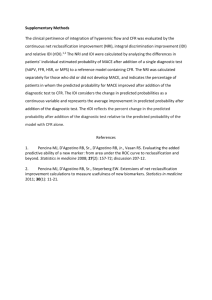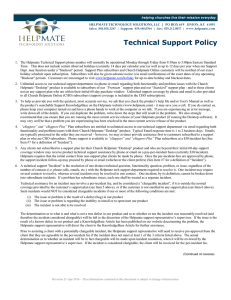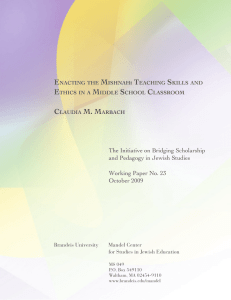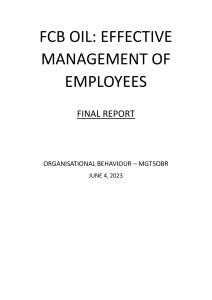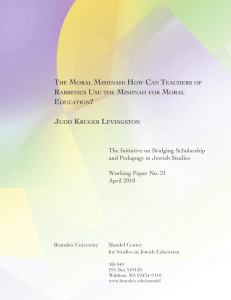part 1
advertisement
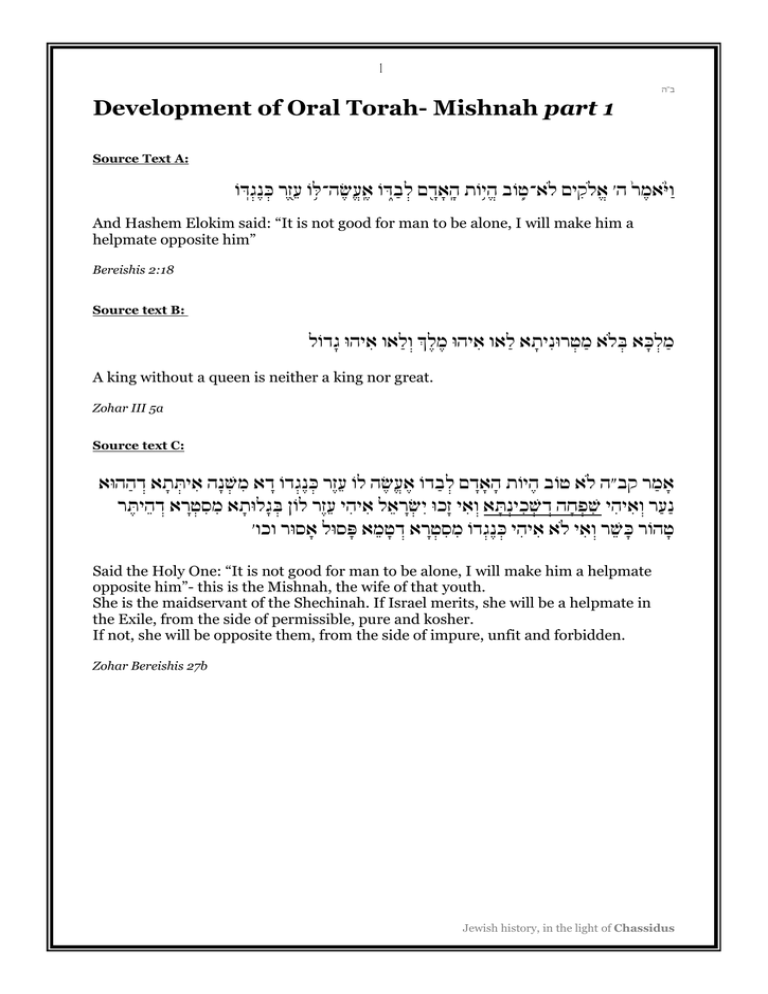
1 Development of Oral Torah- Mishnah part 1 d"a Source Text A: FC« b¤ § pM§ x¤f†¥r F¬NÎdU¡ ¤ r «¤̀ FC®a© l§ m†¨ c`« ¨ d̈ zF¬id ¡ aFhÎ` ² Ÿl miw¦ Ÿl` ¡ 'd Æxn` ¤ ŸI̧©e And Hashem Elokim said: “It is not good for man to be alone, I will make him a helpmate opposite him” Bereishis 2:18 Source text B: lFcb̈ Edi`¦ e`l© e§ Kl¤ n¤ Edi`¦ e`l© `z̈ipEx ¦ h§ n© `ŸlA§ `M̈l§ n© A king without a queen is neither a king nor great. Zohar III 5a Source text C: `Edd© c§ `z̈Yi § `¦ dp̈W § n¦ `c¨ Fcb¤ § pM§ x¤fr¥ Fl dU¡ ¤ r ¤̀ Fca© l§ mc¨`¨ d̈ zFid¤ aFh `Ÿl d"aw xn© `¨ xYi ¤ d¥ c§ `x¨h§ q¦ n¦ `z̈Elb̈A§ oFl x¤fr¥ idi ¦ `¦ l ¥̀ x¨U § i¦ Ekf̈ i`¦ e§ `Ÿpi § k¦ W § c§ dg̈t§ W ¦ idi ¦ `¦ e§ x©rp© 'eke xEq`¨ lEqR̈ `n¥ ḧc§ `x¨h§ q¦ n¦ Fcb¤ § pM§ idi ¦ `¦ `Ÿl i`¦ e§ xW ¥ M̈ xFdḧ Said the Holy One: “It is not good for man to be alone, I will make him a helpmate opposite him”- this is the Mishnah, the wife of that youth. She is the maidservant of the Shechinah. If Israel merits, she will be a helpmate in the Exile, from the side of permissible, pure and kosher. If not, she will be opposite them, from the side of impure, unfit and forbidden. Zohar Bereishis 27b Jewish history, in the light of Chassidus 2 Source text D: D®l̈r§ A© zx´¤ ¤ h£r li¦ gÎz © † W« ¤ ¥̀ A woman of valour is the crown of her husband. Mishlei 12:4 Source text E: :x«R̈q§ n¦ oi¬¥̀ zFn† l̈£re«© mi®¦Wb§ li © R«¦ mi†¦pŸnWE § zFk½ l̈O§ ÆdÖd¥̧ mi¬¦XW ¦ There are sixty queens and eighty concubines, and innumerable maidens. Shir Hashirim 6:8 Source Text F: FY® W § `¦ d´ËgÎz © ¤̀ r†© cï mc½¨`´d̈ ¨ § And Adam knew Chava, his wife. Bereishis 4:1 Source Text G: z©rC̈« Î d¤Eg© i§ dl̈i§ l©À N§ Œ dl̈§i¬©le§ xn¤ Ÿ`® r© i´¦A©i mFil§ † mF´ Day to day utters speech, and night to night tells knowledge Tehillim 19:3 Source Text H: d½ë`p̈«e§ Æip¦ £̀ dxFg ³¨ W § I am black, yet beautiful. Shir Hashirim 1:5 Jewish history, in the light of Chassidus 3 Source Text H: mq© Fl ziU£ ¦ rp© dk̈f̈ "dW ¤ Ÿn mÜ xW ¤ `© dxFY ¨ d© z`Ÿfe" § aiz¦ k§ c¦ i`n© ie¦ l¥ oA¤ r© WFd ª i§ 'x xn© `¨ z¤en̈ mq© Fl ziU£ ¦ rp© dk̈f̈ `Ÿl ,mii¦ g© Said Rabbi Yehoshua ben Levi: “What does the verse mean [when it says] ‘This is the Torah that Moshe placed...’? If one merits, it becomes an elixir of life for him; if he does not merit, it becomes poison.” Talmud, Yoma 72b Source Text I: ux®¨ ¤ ` ic¥q§ Ÿń mi†¦pz̈«¥̀ d̈ e§ And the mighty ones, [are] the foundations of the earth Micha 6:2 Reference I: mi`pz mipzi` Source Text C1: mi`i ¦ a¦ pE § ,mi`i ¦ a¦ p§ l¦ mip¦ w§ ¥ fE ,mip¦ w§ ¥ fl¦ r© WFdi ª e¦ ,©rWFdi ª l¦ Dx¨q̈nE § ,i©piQ¦ n¦ dxFY ¨ lA¥ w¦ dWn ¤ .dl̈FcB§ d© zq¤ ¤ pk§ iW ¥ p§ `© l§ d̈Exq̈n§ Moshe received the Torah from Sinai and transmitted it to Yehoshua, from Yehoshua [it was transmitted] to the Elders, from the Elders to the prophets and the prophets transmitted it to the Men of the Great Assembly. Mishnah Avos 1:1 Jewish history, in the light of Chassidus
